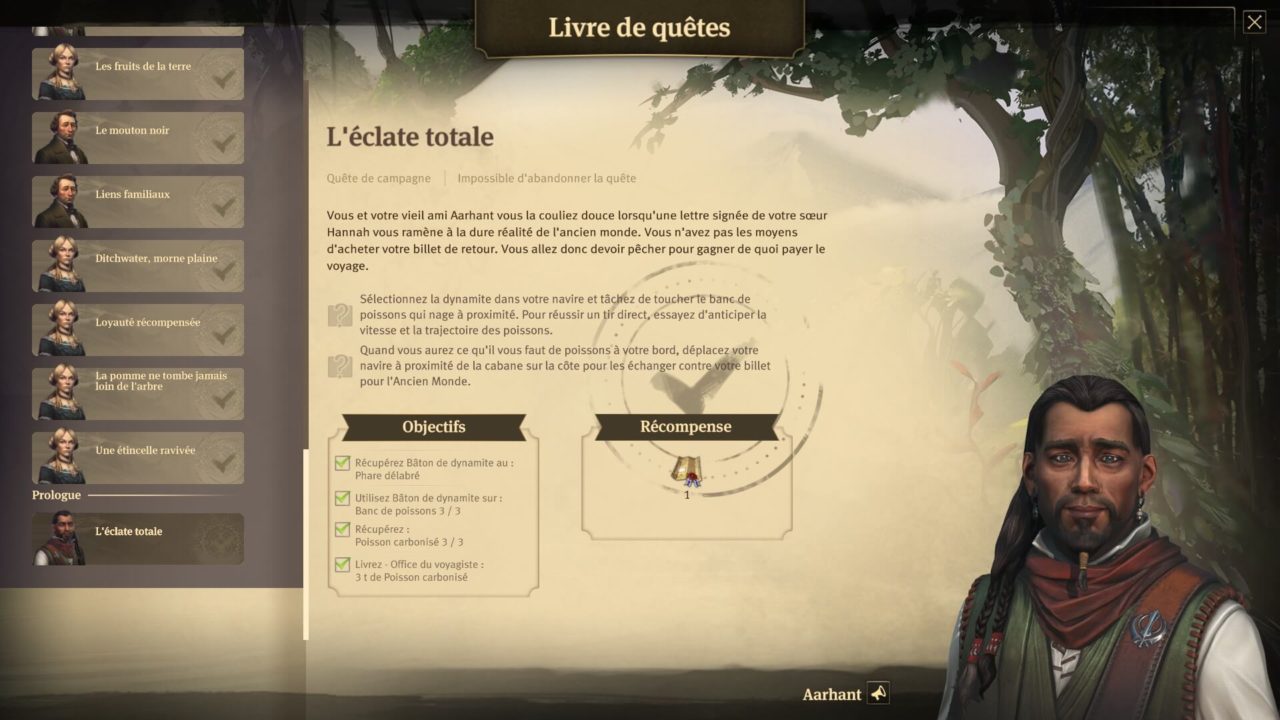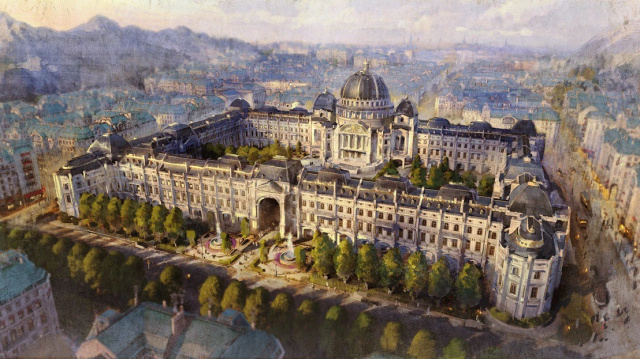

You still need to be able to either create or acquire the right resources to push your city deeper into the technological age. But even a burgeoning economy isn’t a guarantee of success. At the same time, you can sell surplus produce from your settlements for profit. Yet doing this puts you at the behest of other players (or the AI if you’re playing singleplayer). If you’re struggling to create a resource yourself, then you can purchase it via your trading post. The way all Anno’s systems interlock is impressive. Needless to say, I promptly colonised a nearby island and set up a second settlement dedicated almost entirely to the production of beer, then organised a trade route to ferry this vitally important resource to the mainland.

My people quietly informed me of this by staging a massive riot that obliterated my production and almost cost me my game. At one point I discovered my starting island couldn’t produce beer, as the soil wasn’t fertile for growing hops. Viewing larger cities from certain angles will likely cause a significant dip in frame-rate on low-to-medium spec machines.Īs your production chains expand and the desires of your people grow, the strategic side of Anno 1800 begins to show its teeth. Such intimate detail does mean Anno 1800 is quite performance heavy.

Clothing fashions change as your city becomes more advanced, while your horse-drawn carriages will increasingly give way to railroads and even bicycles. These details evolve with your city, too. Your fields of wheat and sugarcane are abuzz with workers, while carriages pulled by horses transport resources to the next stage of production. The game has a slightly painterly aesthetic that complements the detail of its models and animations beautifully. It’s worth noting at this point that both sides of Anno’s city-construction are wonderful to watch in motion.

You could be the King of Steel in the Old World, only to find your economy collapsing because someone in the New World stole an island that produces all your cotton.Įither way, you’ll need to set up trade routes to get these exotic goods to your increasingly needy (and populous) citizenry. This effectively means a game of Anno 1800 plays out on two unique RTS maps at once, which has all sorts of tactical considerations if you’re playing in multiplayer. The New World is represented on an entirely different map, and has unique citizen types, production chains, and resources. So to acquire these, you need to build ships and send them to explore the New World. The latter of these, of course, requires raw materials that don’t grow in a European climate. Once you unlock the third tier of “citizen”, Artisans, you’ll need an infrastructure capable of supporting the production of sewing machines, fur coats, and rum. This is where Anno 1800’s “Blink and it’s “2AM” qualities start to reveal themselves. Larger factories also require dozens, even hundreds of workers to function, so you need the supporting infrastructure in place to keep them fed, watered, and clean. Creating steel beams, on the other hand, requires both an iron-mine and a coalmine for the raw materials, a smelting plant to create steel ingots, and finally a steelworks to forge the beams. Creating wood to build farmhouses, for example, requires a lumberjack’s yard, a sawmill, and a warehouse to store the goods. However, workers are considerably more particular in their needs and wants, going so far as to demand soap, the fops.Īt the same time, your production lines become increasingly convoluted. This unlocks the next evolutionary stage of your settlement, letting you construct more advanced buildings like brickworks and breweries. Once a farmhouse reaches its maximum population, it can then be upgraded to house the next class of citizen-workers. The better you meet those needs, the more people will fill the houses of your village. You’ll need acres of potato fields that can be distilled into schnapps, while also ensuring all farmsteads are within staggering distance of a pub. But to make them happy, you need to ply them with alcohol. Farmers, for example, simply require clothes and fish to subsist. Each “class” of person has a different set of requirements that you need to meet. Progress is Anno is predicated upon two things-population growth and meeting the needs and wants of your citizens. In its early stages, Anno 1800 is a straight-up city-builder. Workers are considerably more particular in their needs and wants, going so far as to demand soap, the fops.


 0 kommentar(er)
0 kommentar(er)
